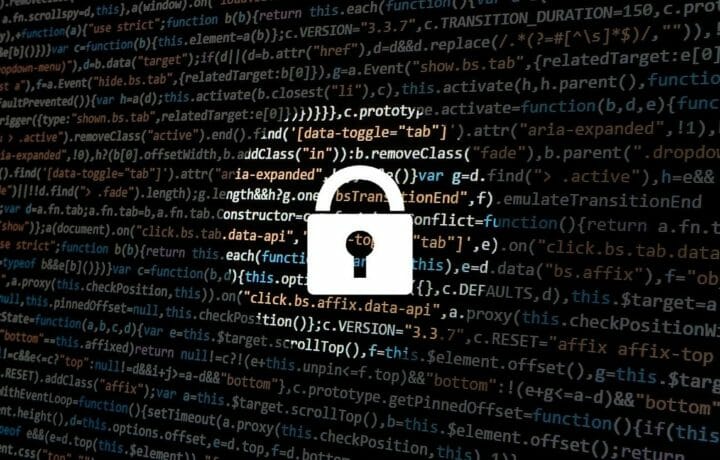According to a new report from technology analytics firm Global Data, the global cybersecurity industry will growth to $238 billion by 2039, up a massive 106 % from the $115 billion value in 2020. The firm’s new report, “Tech Media and Telecom Predictions 2022,” also forecasts that this growth will be driven by a number of potential threats. These will increase as new technologies connect more networks.
This could result in a “zero trust” approach, where enterprise must take the assumption that whatever entity is trying to gain access is untrustworthy and its identity must be verified.
“Companies that do not adopt a zero-trust approach will be more likely to experience a cyberattack in 2022,” explained Emilio Campa, analyst on the Thematic Team at GlobalData, told ClearanceJobs via an email.
“As of September 2021, the U.S. government mandates its agencies to achieve five specific zero-trust security goals by the end of 2024,” added Campa. “Corporations that do not follow this example will miss out on a critical defense that will save them money in the long run. However, implementation of zero trust will not be easy: Google took six years to fully migrate its staff to a zero-trust framework.”
Greater Sophistication and Intensity
Campa warned that we could expect both increased sophistication of cyber attacks in the years to come, and potentially greater intensity. This could include such acts as double extortion during a ransomware attack – where the data is sold online whether the victim pays the ransom or not!
“Double extortion will become the main form of cyberattack in 2022, and a double extortion ransomware attack that spreads globally will occur,” noted Campa. “Companies that handle large quantities of user data or operate networks that manage critical national infrastructure will be most at risk. GlobalData expects governments will focus on offensive cyber capabilities to deter attackers, but this form of deterrence is likely to be ineffective—attribution difficulties and ambiguity surrounding proportional retaliation undermine most cyber deterrence efforts.”
Security Convergence
According to Global Data, the demand will increase for solutions that integrate security in WANs (wide area networks) and cloud services.
“Most companies understand that security is an integral part of their entire business infrastructure and are turning to multiple vendors to provide security services,” suggested Campa. “Therefore, interoperability will become increasingly important. Governments continue to experience ‘gray zone’ cyber threats—such as the 2017 WannaCry ransomware attack that impacted the running of the NHS, and the 2020 SolarWinds hack that resulted in huge amounts of sensitive data being stolen—and will turn to businesses for holistic security and data protection solutions.”
Quantum Computing Growth
The growth of cloud-based quantum computing services and an increasing need to implement security solutions to protect it, could continue to shape the market for 2022. Quantum computers, which are designed to complete tasks in seconds that could take classic computers thousands or even millions of years to complete, have been the focus of development in recent years, and a threat is what it means for existing security.
“A stable, scalable, error-corrected quantum bit remains many years off,” said Robert Penman, another Global Data analyst in the Thematic Research team. “However, quantum algorithms will start to unlock problems that classical computers struggle with over the next few years, giving users a quantum advantage. Therefore, cloud-based quantum services are the main growth opportunity for quantum start-ups. They must seek opportunities to partner with Big Tech to make their hardware accessible through the cloud.”
Penman told ClearanceJobs via an email that there is a risk the cybersecurity industry could be caught unprepared; it will likely develop quantum-resistant encryption before RSA codes are broken.
“However, powerful quantum computers in the future could break the encryption of secure communications captured today,” said Penman. “The consequences are the potential for huge data breaches in the future, with important communications, personal data, and national security matters unlocked. It is therefore imperative that companies implement quantum security solutions in 2022.”
Is Quantum A Real Concern?
Recent quantum developments have the potential to break public-key cryptography, which secures most of the Internet, and while the first nation to develop it could have an advantage; it isn’t likely to be a problem in the immediate future.
Yet, it should not be one that is ignored. The race is on, and the U.S. effort is still expected to lead the way.
“The challenge everyone faces in this game has been to sustain enough qubits – quantum bits – to perform the unique form of computations enabled by this technology,” said Jim Purtilo, associate professor of computer science at the University of Maryland.
“Stability is tough – the physics of these systems is such that the particles decay pretty quickly, and you need enough of them for the quantum algorithms to outshine their conventional counterparts,” Purtilo told ClearancesJobs. “Maintaining even a half dozen in this special state is a big deal and helps people demonstrate the concepts, but we’d need a couple hundred to make a splash by computing answers which could never have been found before. We’re not there yet, really, and the race is to see which of the competing laboratories can get there first and declare ‘quantum supremacy.’ Are we going to see that in the coming year? Maybe but honestly, I don’t think so. The engineers have been stalking this problem for several years now, and they’re getting better all the time but still, there’s no clear winner.”
The greatest threat is that not all of the work on quantum computations is thought to be out in the open, so those working on it don’t even know where they are compared to the competition.
“One of the silent actors could reach quantum supremacy without boldly declaring it,” explained Purtilo. “This means groups could conduct a number of sensitive activities with national security implications – like decrypting previously-secure communications – without being on our radar. And that would be a real problem.”



